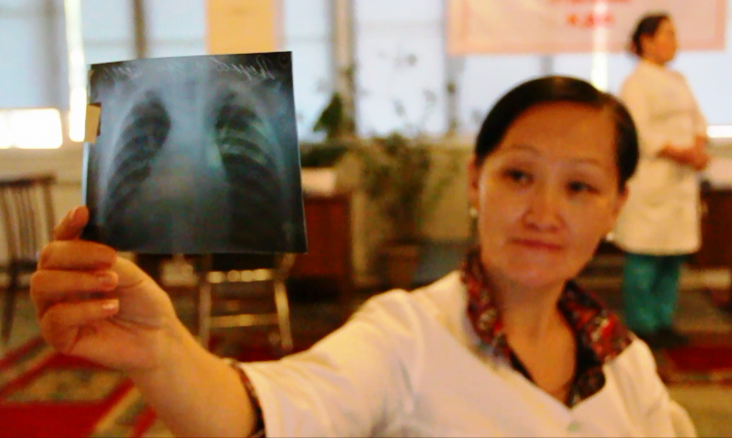
For Immediate Release
Bishkek – Kyrgyzstan, in partnership with the United States and other international donors, has made significant progress in the fight against tuberculosis (TB). Programs have limited the spread of TB, decreased the mortality rate for those infected, and increased the overall success rate of treatment programs. Remarkably, since 2001, the mortality rate has fallen from 27 to just seven deaths per 100,000 citizens. Through close U.S.-Kyrgyz Republic cooperation, best practices have been adopted and effective care and treatment now reaches over 90% of all TB-infected persons in Kyrgyzstan.
USAID technical assistance has enabled the Ministry of Health to increase coordination between the various provider levels within the health care system and to make the TB treatment process more cost-effective. Using a patient-centered approach, the Ministry of Health has created social support networks that help patients better adhere to their TB treatment schedules.
Cooperation in the fight against TB has also led to the adoption of more efficient outpatient treatment plans. With outpatient treatment, patients do not need to stay for months in TB hospitals, and instead access treatment at local hospitals. This reduces the stigma associated with long term hospitalizations, and helps ensure more patients seek and complete treatment. It also allows patients to remain in their communities, and continue with their normal work, life and family activities. The outpatient treatment is much less expensive than long term hospitalizations, which means that three times as many patients can be treated with the same funding.
By using USAID-purchased high-tech “GeneXpert” diagnostic equipment, doctors determine almost immediately if a patient is infected with TB. Doctors can identify drug-resistant forms of TB within hours, as compared to months, as was the case before. Easier, faster and more effective TB tests are available to more patients in each oblast of Kyrgyzstan.
Despite these advances, significant challenges remain, including high rates of multi-drug resistant forms of TB; poor quality of TB care in hospitals, primary healthcare facilities and labs; weak infection control practices; human resource and financial constraints; social stigma and discrimination against TB patients; and serious co-epidemics with HIV, diabetes, and tobacco use.
USAID will continue to support the Kyrgyz Republic in addressing these challenges as part of the “USAID Defeat TB Project”. This five-year project is among many public health activities advised and financed by the United States to fight deadly infectious diseases and strengthen the health care system in the Kyrgyz Republic.







Comment
Make a general inquiry or suggest an improvement.